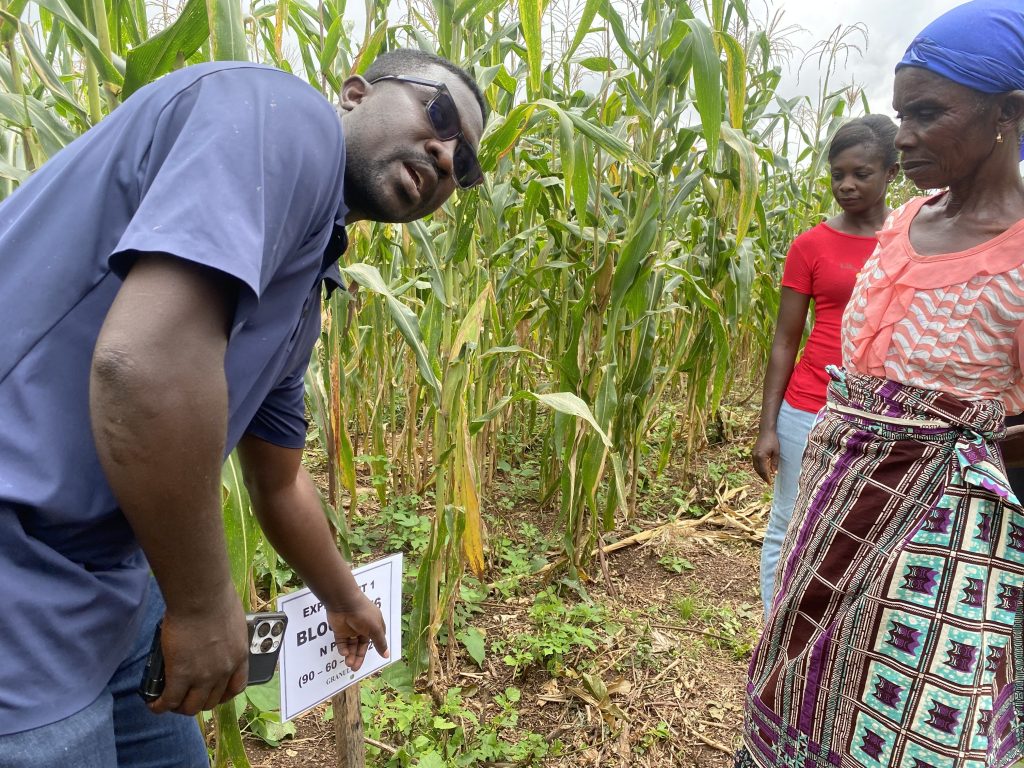By Florence Afriyie Mensah
Dida (Ash), July 25, GNA – The Ministry of Food and Agriculture, in collaboration with the International Fertilizer Development Centre (IFDC) and Soil Research Institute of the Council for Scientific and Industrial Research (SRI-CSIR), is implementing a project to improve the efficiency of fertilizer application in the country.
The aim of the Fertilizer Research and Responsible Implementation (FERARI) project is to develop a systematic approach to support widespread adoption of balanced fertilizers by famers in Ghana to help maximize their crop yields to improve food production and nutrition.
A field trip to demonstration farms involved in the use of improve blends of granular and briquetted fertilizers for maize production under the project was held for farmers at Dida in the Atwima kwanwoma District of the Ashanti region.
Dr Patrick Ofori, a Senior Research Scientist at the Soil Research Institute (SRI), who led the farmers, said the existing blends of fertilizers needed to be improved for farmers to work with to help improve yields.
He noted that in the government’s Planting for Food and Jobs Programme, some quantities of fertilizers – 90-60-60kg NPK per hectare for farmers in the Guinea Savannah and 100-40-40 kg for the transitional zones in Ghana, were recommended for farmers.
However, farmers have not been able to get the expected yields at the end of the period.
This, he said, prompted the Ministry of Food and Agriculture, CSIR-SRI, and International Fertilizer Development Center (IFDC) to develop and implement the five-year FERARI (2020-2025) project, to develop the fertilizer value chain based on trans-disciplinary research to build a systematic approach to support widespread adoption of balanced fertilizers by farmers.

According to Dr Ofori, factors such as soil type both physical and chemical, soils not deep enough to hold the architecture of plants, as well as leaching, were found to be contributing to the varied yields per hectares of soil and inadequate harvests.
“The need to reduce the farmers input cost is one key reason for doing the research because fertilizers have become very expensive for the average farmer to acquire.
So, we saw the need to do something to improve upon its efficiency so that if there is such a quantity that one has to apply, there will be maximum benefit from it.
It is still in the research stage and no conclusions have been made,” he explained.
“We are ensuring that farmers are privy to the studies being conducted so that when final recommendations for policies are made, they will appreciate it better and apply on the farms,” Dr. Ofori added.
Dr Williams Kwame Atakora, National Coordinator, IFDC, speaking to the Ghana News Agency (GNA) on what had transpired since the beginning of the programme, said the trials being conducted for the past three years were bringing out key issues.
“In the interim, it has been observed that the yields are not proportional to what farmers are supposed to get.
So, we are now varying the trials with addition of sulphur because some of the soils are deficient in sulphur and these are all geared towards fortifying the grains with quality nutrients for production,” he said.
Dr Atakora said the trials were geared towards bringing out the right recommendations – how much fertilizer should be applied at specific sites and fertilizers moving into the grains to fortify them.
GNA